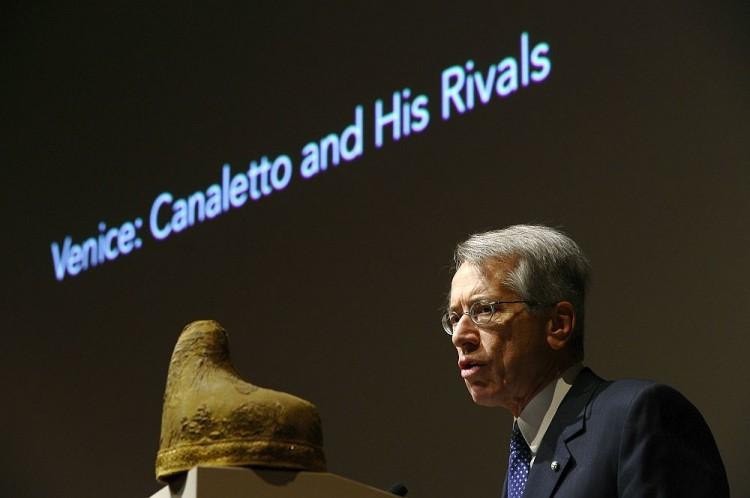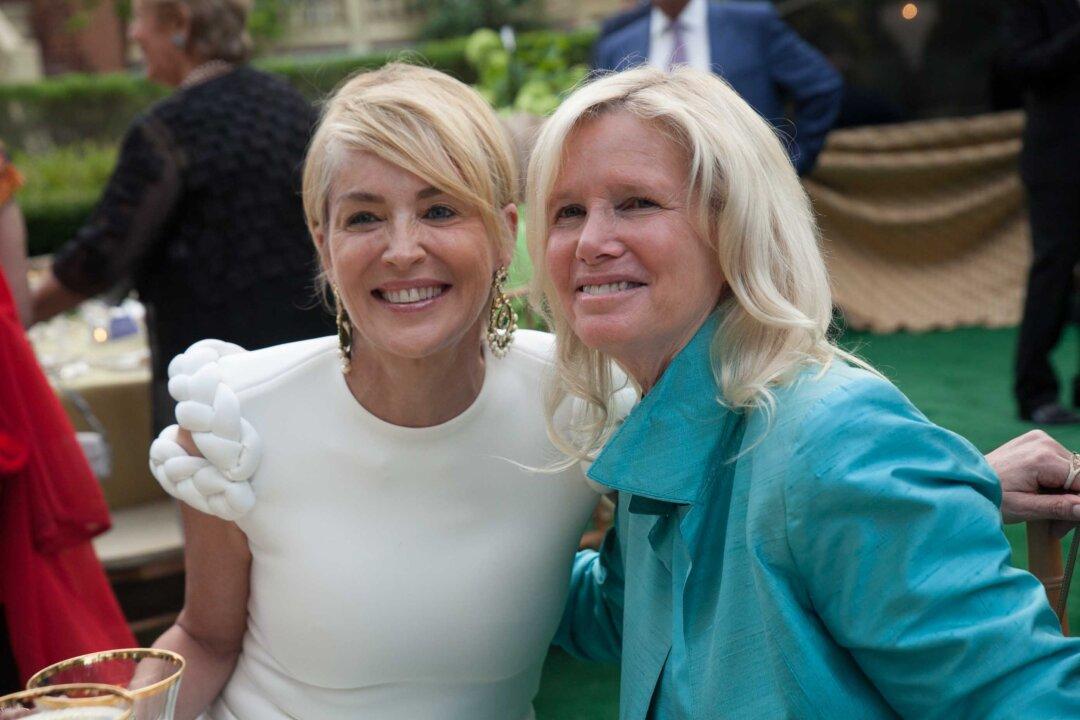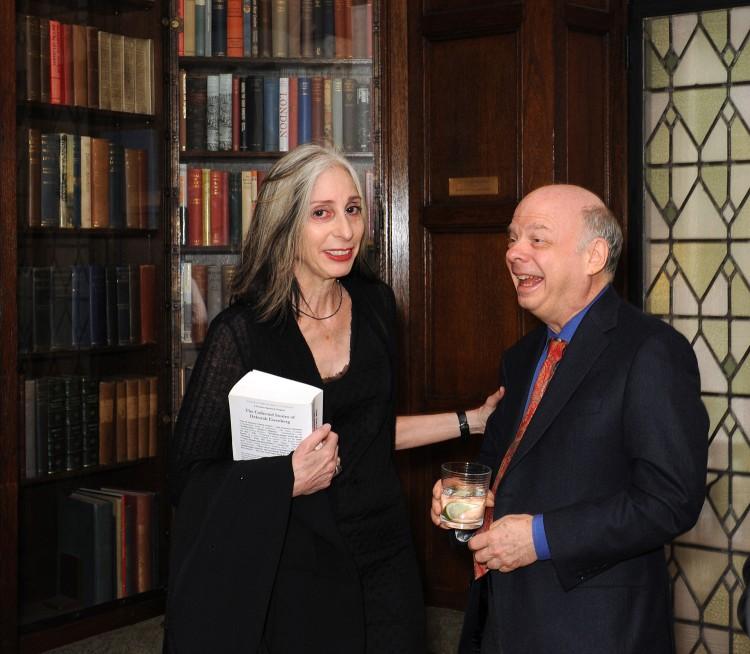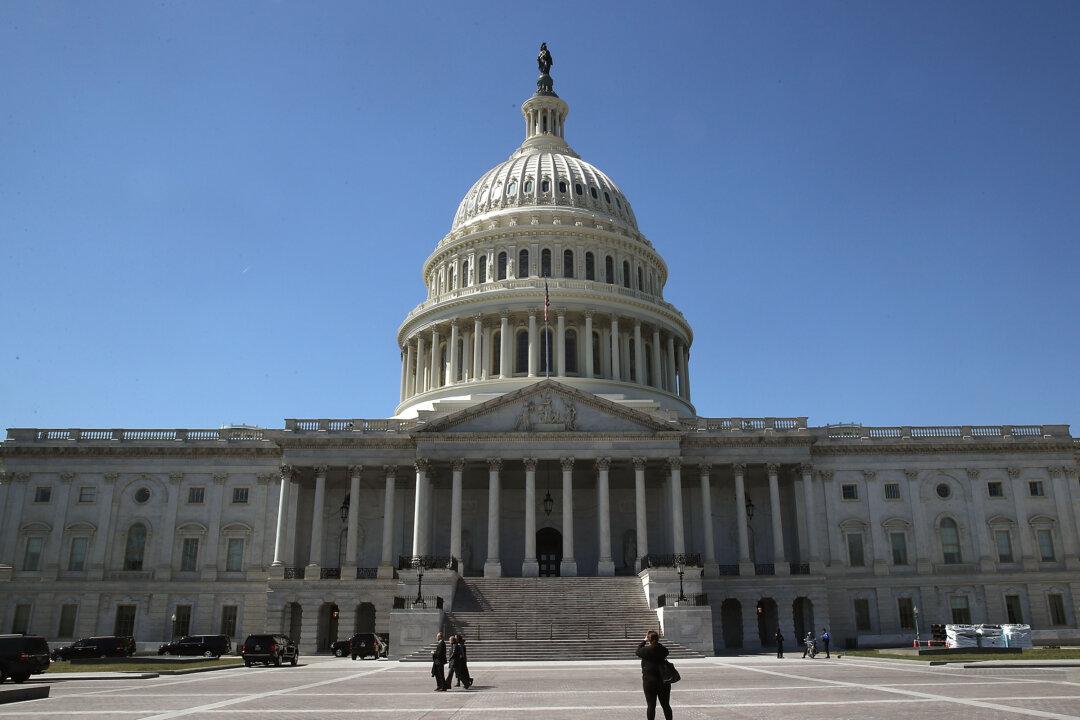Ambassador of Italy to the US, Giulio Terzi di Sant'Agata, represents over 60 million people of Italy in the capital of the most powerful nation on earth. The 2006 US Census estimated that 6% of the US population was Italian-American, an increase of 14% since 2000.
The Ambassador gave us a few hours of his time to share his perspectives on the big topics facing Italy and the U.S., at the Chancery on White Haven Street in Washington, D.C., before leaving for a summer sojourn to his hometown in Bergamo. Here is an abbreviated version of that interview.
What would you say is the best-possible training for a prospective ambassador?
A strong background in international law and knowledge of the history of international relations and economics is a pre-requisite for every diplomat who wants to understand and master the complexity of today’s world.
My personal suggestion is to keep abreast with technological advancements. The world of diplomacy has been changing so fast in the past 20 or so years because of technology. Public diplomacy is also an important part of an Ambassador’s job. It is the way we present our country to the public. It has been shaped around the advancement in communication technologies and has gained great momentum in the past few years thanks to social media outlets like Facebook and Twitter.
The latest G8 Summit this past May in France is a clear example: Mark Zuckerberg, founder of Facebook, and Eric Schmidt, executive director of Google, were seated at the same table as Prime Minister Silvio Berlusconi, U.S. President Barack Obama, and the other world leaders. Prospective Ambassadors have to realize what is now cutting edge diplomacy might be obsolete 20 or so years from now.
What, so far, has been the highlight of your career?
Meeting many generations of Italians abroad and realizing how much their work, their example, greatly contribute to that widely felt affection Italy enjoys in the world. I have to say that the many stories I’ve learned, the many Italian heroes I’ve met are what I always take with me when I move from place to place.
If you ask me about a particular episode, I would say the siege of the Nativity Church in Bethlehem in 2002 and the following negotiations to free the hostages including Italian journalists. As I was Ambassador of Italy to Israel, I was directly involved.
What single accomplishment, professionally, are you most proud of?
Heading the Italian delegation to the UN Security Council as Permanent Representative in New York is an opportunity only few diplomats have been fortunate enough to have. It was both challenging and rewarding at a time when issues like Afghanistan, Kosovo, Georgia and the Middle East were on the table of the Fifteen.
But allow me a second one. The celebration of Italy’s 150th Anniversary in the US. Beginning last September, together with our consulates and our cultural institutes we crafted Italy@150, a program of hundreds of events organized throughout the United States under the auspices of the President of the Italian Republic.
...Italy@150 gives me the opportunity of presenting another side of my country to the American people: the countless cultural, historic and philosophical roots of the bonds between our two Countries. There were many personalities, many Italians, whose actions and ideas made them “legends” for both countries and for their shared identity. Many names spring to mind, but just think of: Christopher Columbus, Andrea Palladio and Giuseppe Garibaldi. There are also countless stories of many “Italian patriots” who immigrated to the United States and hence became “American patriots”.
Since “The Epoch Times” is a world newspaper known for its human- rights coverage, can you speak about your track record on this topic?
Again, my UN experience in tandem with my tenure as Political Director in Rome allowed me to contribution to Italy’s track record of unwavering support for human rights as enshrined in the very charter of the UN.
During Italy’s term as an “elected” member, I recall the Security Council introducing for the first time in the history of peace-keeping mandates, provisions Italy supported to protect civilian populations in armed conflicts, especially women and children. Together with many nongovernmental organizations, Italy insisted on a full implementation of Resolution 1325 on “Women, Peace and Security”. We supported the passing of Resolution 1820 against sexual violence.
And of course it gives me particular pride to have been part of the campaign Italy led in 2007 to have, for the first time ever, the General Assembly of the United Nations approve a resolution on a universal moratorium on capital punishment--an endeavor Italy had pursued since 1993. This resolution then became the official policy of the European Union.
How stable in your opinion is the Italian economy?
The crisis has not spared any region of the world. Europe and its countries are still battling to get out of the tunnel and so is the United States. What we cannot accept is the “irrational speculation” --what we have recently witnessed. By “we” I mean Italy, Europe, and the United States: Europeans, Americans and international financial institutions are aware of this and have stood up to halt these destabilizing attacks from spreading their effects throughout the world.
“Irrational speculation” aside, against a very difficult backdrop there are signs that should be seen as positive indicators for a more optimistic perspective.
Italy is the seventh largest economy in the world, the third in Europe. Italian Parliament has recently passed a plan to balance our budget by 2014. Italian households remain generally sound, thanks to their low level of private debt and large share of low-risk assets. Furthermore, a large part of their liabilities are solidly collateralized...
Growth is still something we have to work on to stimulate the recovery.
What do you make of the egregious shifts of power occurring and beginning to occur, in countries like Egypt, Syria, and Libya?
The “revolutionary” events of the last few months in Northern Africa and the Middle East have underscored the desire for full recognition of the political and civil rights of citizens of the Mediterranean...
The existence and the prospect of huge migrations from North Africa constitute a very complex issue for my country: following the “Jasmine Revolution”, some 43,000 immigrants have reached Italy, over 18,000 - mostly Eritrean and Somalis - have come from Libya. The small Italian island of Lampedusa, with its 5,000 inhabitants, was literally overwhelmed.
[related-right]My country has faced and managed this exceptional flow with generosity and responsibility. At the same time, we have asked Europe for a rapid and more effective response.
Migrations cannot be dealt with only by those countries whose geography puts them, both literally and metaphorically in the subject line. Migrations require a cooperative approach.
Thank you, Your Excellency, for your considered responses.
Professional Background
Ambassador Giulio Terzi di Sant'Agata assumed his duties as Ambassador of Italy to the United States on Oct. 1, 2009. His previous assignments include: Representative to the United Nations in New York (2008-09), where he also headed the Italian Delegation to the U.N. Security Council; Political Director (2005-08) and Deputy Secretary-General (2004-05) of the Ministry of Foreign Affairs; Ambassador of Italy in Tel Aviv (2002-04).
Journalist, author and playwright Alessandra Gelmi recently published “Ring of Fire,” a collection of her poems from 1972-2006. The author can be reached at [email protected]




